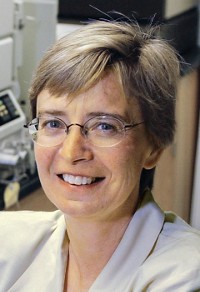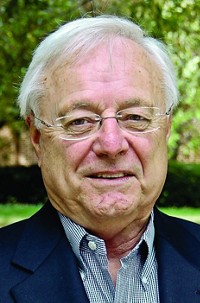Advertisement
Grab your lab coat. Let's get started
Welcome!
Welcome!
Create an account below to get 6 C&EN articles per month, receive newsletters and more - all free.
It seems this is your first time logging in online. Please enter the following information to continue.
As an ACS member you automatically get access to this site. All we need is few more details to create your reading experience.
Not you? Sign in with a different account.
Not you? Sign in with a different account.
ERROR 1
ERROR 1
ERROR 2
ERROR 2
ERROR 2
ERROR 2
ERROR 2
Password and Confirm password must match.
If you have an ACS member number, please enter it here so we can link this account to your membership. (optional)
ERROR 2
ACS values your privacy. By submitting your information, you are gaining access to C&EN and subscribing to our weekly newsletter. We use the information you provide to make your reading experience better, and we will never sell your data to third party members.
People
ACS Award In Analytical Chemistry
Recipients are honored for contributions of major significance to chemistry
by Celia Henry Arnaud
February 2, 2009
| A version of this story appeared in
Volume 87, Issue 5
Sponsored by Battelle Memorial Institute
Peter W. Carr, professor of chemistry at the University of Minnesota, has made a big impact on the field of chromatography, but he didn't start out heading in that direction.
"I consider myself an analytical chemist first and a separation scientist second," he says.
Although people now consider him a chromatographer, he began his career as an electrochemist. "I didn't have any papers in separations until I came to" Minnesota, he says.
Prior to joining the faculty at Minnesota, Carr spent eight years at the University of Georgia. He learned about separations by teaching the graduate course in the subject at Georgia. "Teaching it really made me see the power of separations, and it became attractive to me," he says. When he moved to the University of Minnesota, he reexamined his research program and gradually moved into chromatography.
He's been leaving his mark on the field ever since. "Carr has made seminal, fundamental, and pragmatic contributions to improve analytical chemistry involving separations," says Stephen G. Weber, a chemistry professor at the University of Pittsburgh. Weber especially points to Carr's contributions to the development of stable reversed-phase packing materials and to the understanding of the chemistry of reversed phases.
Especially notable is the development, starting in the late 1980s, of zirconia packing materials for liquid chromatography columns.
"I was interested in biological separations and hooked up with some people here at the university involved in large-scale protein purifications," Carr says. "They wanted to be able to use a column, sterilize it, and reuse it, but the sterilization conditions were exceedingly harsh. You could see how they would cause tremendous deterioration of silica-based phases." He asked his contacts at 3M, which sells various products based on the tough ceramic material zirconia, if they could make porous zirconia as an LC packing material. They could, and they did.
Since then, Carr has moved on to other areas such as developing tandem thermally tuned chromatography. In this technique, two columns with different stationary phases are placed in series and individually thermostatted. "By thermally tuning the pair of columns," Weber says, "subtle retention changes can be made that result in achieving difficult separations without the time-consuming efforts involved in mobile phase optimization."
Carr is pushing this concept even further as he develops fast two-dimensional liquid chromatography. He performs separations in 30 minutes that would take hours under standard conditions. "The multidimensionality is a way to enhance resolving power but not take a super-duper longer time to do it," he says.
Carr, 64, received a B.S. in chemistry from Polytechnic Institute of Brooklyn (now Polytechnic Institute of New York University) in 1965. He undertook his graduate studies in chemistry at Pennsylvania State University, earning a Ph.D. in 1969. He did postdoctoral work at Stanford University School of Medicine.
In 1969, he joined the faculty at the University of Georgia as an assistant professor. He was promoted to associate professor in 1975. Since 1977, he has been a chemistry professor at the University of Minnesota.
Among Carr's honors are the Benedetti-Pichler Award, which he received in 1990 from the American Microchemical Society; the Eastern Analytical Symposium Award in Analytical Chemistry in 1993; and the ACS Award in Chromatography in 1996.
Carr will deliver the award address before the Division of Analytical Chemistry.






Join the conversation
Contact the reporter
Submit a Letter to the Editor for publication
Engage with us on Twitter